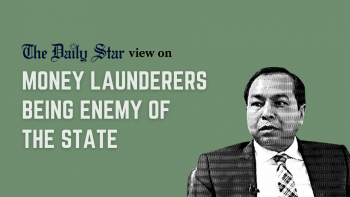Don’t let defaulters cripple NBFIs, too

It is deeply upsetting how the loan crisis has been ravaging Bangladesh's non-bank financial institutions (NBFI) sector, having already done the same to the banking sector. An analysis of recent data from Bangladesh Bank reveals that, as of June, these institutions reported defaulted loans accounting for a staggering 27.65 percent of their total outstanding loans. The combined amount of soured loans in the 35 NBFIs reached Tk 19,951.17 crore, representing a year-on-year increase of 25.2 percent or Tk 4,015 crore. Perhaps even more alarming is the claim, by a central bank official, that the actual volume of bad loans is likely significantly higher.
Even excluding unreported figures, this represents a record volume of defaulted loans in the NBFI sector. It mirrors the predicament of the banking sector that also saw, according to a recent report by this daily, a record high of Tk 156,039 crore in non-performing loans as of June. And as in the case of NBFIs, there are fears that the actual volume of bad loans in the banking sector would also be much higher given the practice of misreporting and if loans that are written off or tied up in money loan courts are counted. And the fact that both sectors have been victims of almost similar systemic issues and irregularities shows how institutionalised defaulting has become.
In this grim situation, it's not just the defaulters, most of them influential and politically backed, who are at fault. The government and the central bank – which regulates both sectors – equally share responsibility for the debacle as they have consistently patronised this culture. For years, lending irregularities and political influence have allowed questionable entities to borrow money and evade repayment, while the regulator has failed to enforce regulations and take stringent actions against habitual defaulters, scammers and money launderers. Against this backdrop, the recent conviction of PK Halder, who embezzled about Tk 3,500 crore from several NBFIs, marks a rare attempt at establishing accountability. The question, then, remains: how long must the financial sector bleed before something is done about it?
It goes without saying that the implications of the leniency being shown to habitual defaulters are profound. The stark rise in the number of weak NBFIs and struggling banks, or the country's recent credit downgrades – which will further discourage foreign investors – are just some of the more visible outcomes. We, therefore, urge the authorities to stop this rot by any means necessary. They must reaffirm their commitment to financial transparency, regulatory rigour, and ethical banking practices. If action is not taken urgently, the damage could be long-lasting.


 For all latest news, follow The Daily Star's Google News channel.
For all latest news, follow The Daily Star's Google News channel. 










Comments